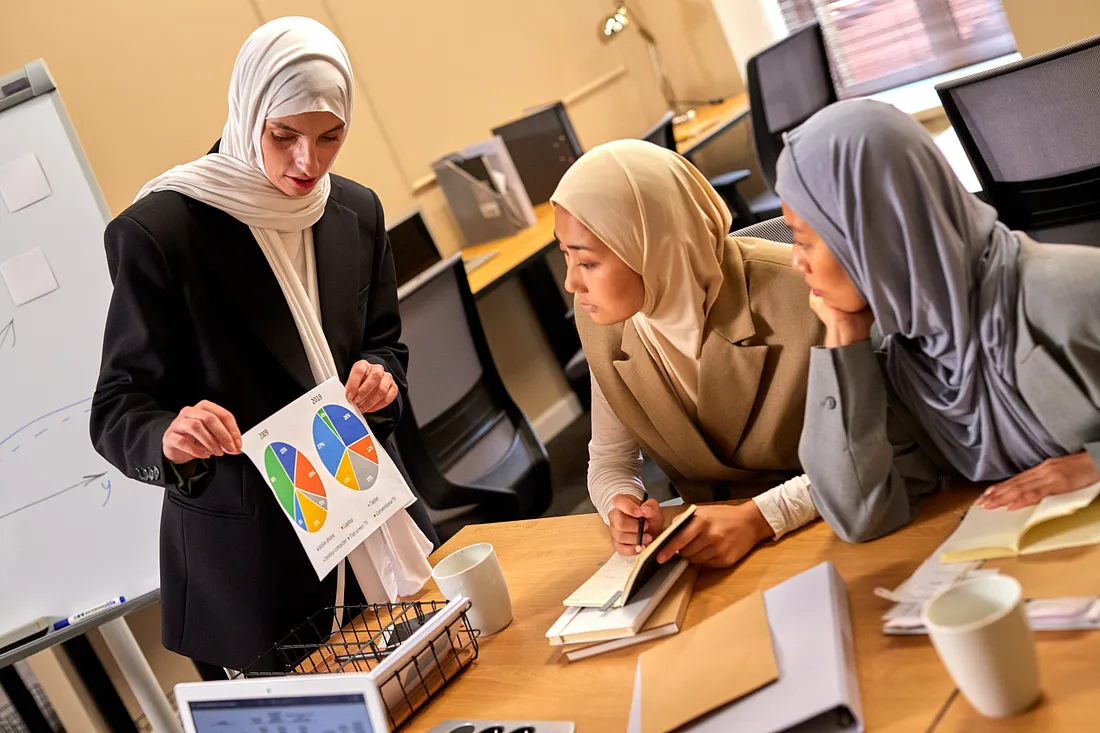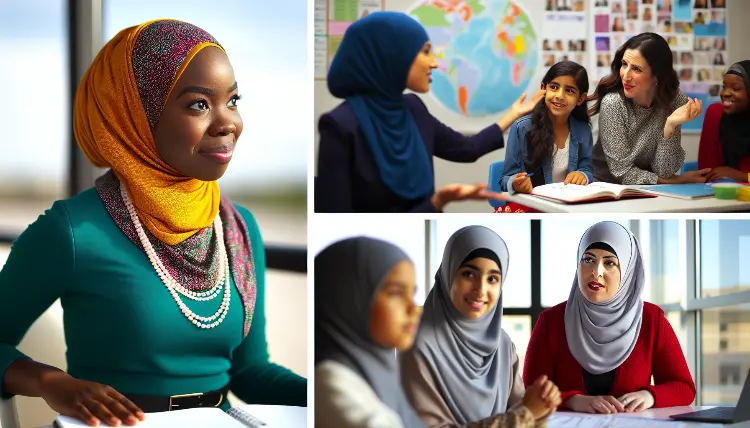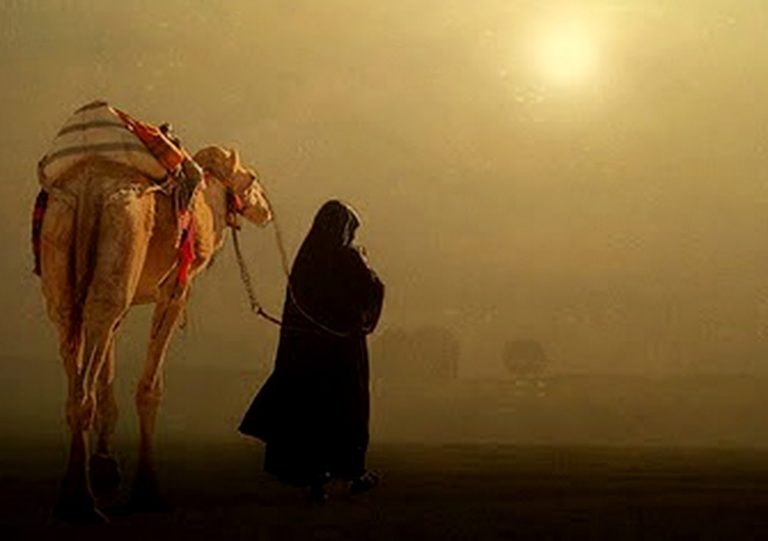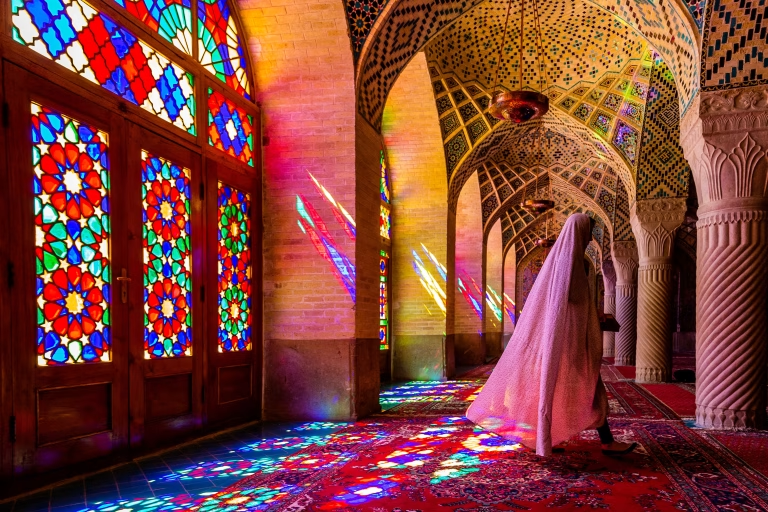Empowering Women in Islam: Embracing Equality and Liberation
Unlocking the Untold Stories of Strength, Resilience, and Empowerment
Explore the profound Empowering Women in Islam as it celebrates the strength, resilience, and dignity of women. Delve into the untold stories of liberation, highlighting the pivotal role of women in shaping Islamic history and society.
Introduction:
In a world where misconceptions often overshadow reality, the portrayal of women in Islam remains a subject of much debate. Yet, beneath the surface lies a rich tapestry of empowerment, equality, and liberation, where women have played pivotal roles in shaping Islamic history and society. This emotional journey delves into the untold stories of strength, resilience, and empowerment, celebrating the inherent dignity and worth of every woman in Islam.
Women in Islam: Empowerment and Equality
The Essence of Women’s Empowerment in Islam
Breaking Stereotypes:
Contrary to popular misconceptions, Islam champions the empowerment of women, recognizing their inherent worth, capabilities, and contributions to society. From the earliest days of Islam, women played vital roles as scholars, leaders, and pillars of strength within their communities.

Embracing Dignity and Respect:
In Islam, women are revered as daughters, sisters, mothers, and wives, each role imbued with honor, dignity, and respect. Far from being oppressed, Muslim women are cherished and protected, their voices valued and their rights safeguarded by the teachings of Islam.
Championing Education and Knowledge:
Education lies at the heart of empowerment in Islam, with the Prophet Muhammad (peace be upon him) emphasizing the importance of seeking knowledge for both men and women. Throughout history, Muslim women have excelled in various fields, from theology and jurisprudence to medicine, literature, and beyond.
Equality in Islam: Beyond Gender Norms
Spiritual Equality:
In the eyes of Allah, men and women are equal, with both genders held accountable for their actions and rewarded for their piety and righteousness. Islam rejects the notion of gender-based superiority, emphasizing spiritual equality and moral responsibility for all believers.
Social Justice and Equity:
Islamic teachings advocate for social justice and equity, ensuring that women have equal access to opportunities, resources, and legal rights. From inheritance laws to marriage contracts, Islam upholds principles of fairness and balance, safeguarding the rights of women in all spheres of life.
Breaking Barriers:
Throughout history, Muslim women have shattered barriers and defied societal norms, emerging as leaders, scholars, and agents of change. From Fatima al-Fihri, founder of the world’s oldest university, to contemporary activists advocating for women’s rights, Muslim women continue to inspire and empower future generations.
The Power of Resilience: Stories of Triumph and Liberation
Resilience in Adversity:
Despite facing countless challenges and adversities, Muslim women have shown remarkable resilience and fortitude, navigating through trials with grace and dignity. From political upheavals to personal struggles, their stories of triumph inspire hope and resilience in the face of adversity.
Liberation through Faith:
For many Muslim women, faith serves as a source of liberation and empowerment, providing solace, strength, and guidance in times of turmoil. Through prayer, reflection, and spiritual connection, women find liberation from societal constraints and inner peace in the embrace of Islam.
Empowering Future Generations:
As torchbearers of empowerment and equality, Muslim women are paving the way for future generations, instilling values of courage, compassion, and resilience in the hearts of their daughters and sons. Their legacy of empowerment continues to shape the narrative of women’s rights and liberation in Islam.
Frequently Asked Questions (FAQs):
Do Muslim women have rights in Islam?
Yes, Muslim women have rights enshrined in Islamic teachings, including the right to education, work, inheritance, and personal autonomy. Islam champions the dignity, worth, and rights of women, safeguarding their interests and well-being.
What is the role of women in Islam?
The role of women in Islam is multifaceted, encompassing various roles as daughters, sisters, mothers, and wives. Women in Islam are valued for their contributions to family, community, and society, with their roles respected and honored within the framework of Islamic teachings.
Are Muslim women oppressed?
Contrary to popular misconceptions, Muslim women are not oppressed within the framework of Islam. Islam champions the empowerment, dignity, and rights of women, ensuring their autonomy, agency, and well-being within the bounds of Islamic teachings.
Can Muslim women work or pursue education?
Yes, Islam encourages both men and women to seek knowledge and pursue education and career opportunities. Muslim women have historically been scholars, educators, professionals, and leaders in various fields, contributing to the advancement of society and the enrichment of Islamic knowledge.
How does Islam view women’s rights?
Islam views women’s rights as integral to its teachings, emphasizing dignity, equality, and justice for all believers. Islamic principles safeguard the rights of women in matters of education, employment, marriage, divorce, inheritance, and personal autonomy, ensuring their well-being and empowerment.
What is the significance of hijab in Islam?
The hijab, or modest dress, holds various significances in Islam, including modesty, dignity, and identity. For many Muslim women, the hijab serves as an expression of faith, cultural identity, and personal choice, embodying principles of modesty and piety in accordance with Islamic teachings.
Conclusion:
In the tapestry of Islam, the empowerment and equality of women shine brightly as beacons of hope, resilience, and dignity. From the annals of history to the present day, Muslim women have stood as paragons of strength, courage, and compassion, shaping the narrative of empowerment and liberation within Islam. As we celebrate their stories of triumph and resilience, let us reaffirm our commitment to honoring the inherent dignity, worth, and rights of every woman in Islam.







